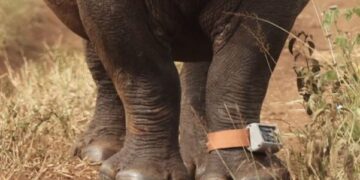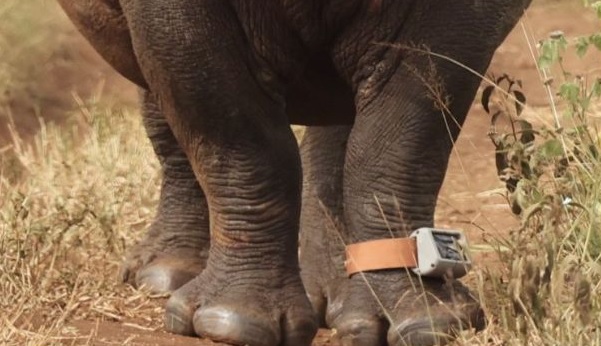By John Ikani
In the ongoing battle for rhino conservation, Artificial Intelligence (AI) is making a significant contribution to safeguard a portion of the endangered rhino population in South Africa’s KwaZulu-Natal province, thanks to innovative “conservation collars.”
The conservation collar project was initiated this winter at Thanda Safari Game Reserve, in collaboration with the rhino collar technology firm, Rouxcel Technology.
This collaboration has turned the dream of enhancing rhino protection into a reality.
These newly developed AI-enabled conservation collars are equipped to continuously monitor, analyze, and learn individualized behavioural patterns of each rhino, all thanks to advanced algorithms.
When the collar detects “unusual” activities, such as potential poaching, territorial fights, mating, birthing, or signs of illness, it promptly sends an alert to the rangers’ mobile devices, providing the precise GPS location of the incident.
This quick response capability allows for the effective protection of these majestic creatures.
Mariana Venter, a Wildlife Operations Co-Ordinator, shared her enthusiasm regarding the technology, saying, “For security reasons, this system is crucial in helping us catch poachers in the act. Moreover, it generates invaluable data for tracking rhino movements, monitoring their health, and overall well-being. This knowledge helps us understand more about their habitats and various home ranges. This is particularly important for the elusive Black Rhinos, which tend to prefer dense vegetation, making them challenging to monitor. Consequently, we often have prolonged periods with infrequent sightings.”
As the tragic issue of rhino poaching continues to persist in various parts of South Africa, all efforts, whether they are technology-driven or traditional fieldwork, play a vital role in the protection of these mighty rhinos and their diverse species.
They deserve a place in the future, and AI is helping to secure that future.




































